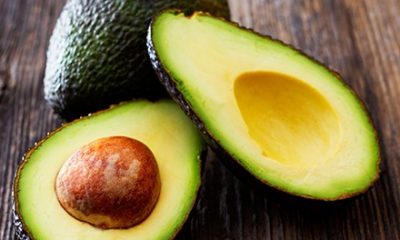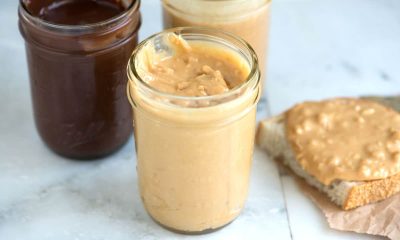Health
15 Benefits of coconut oil for hair
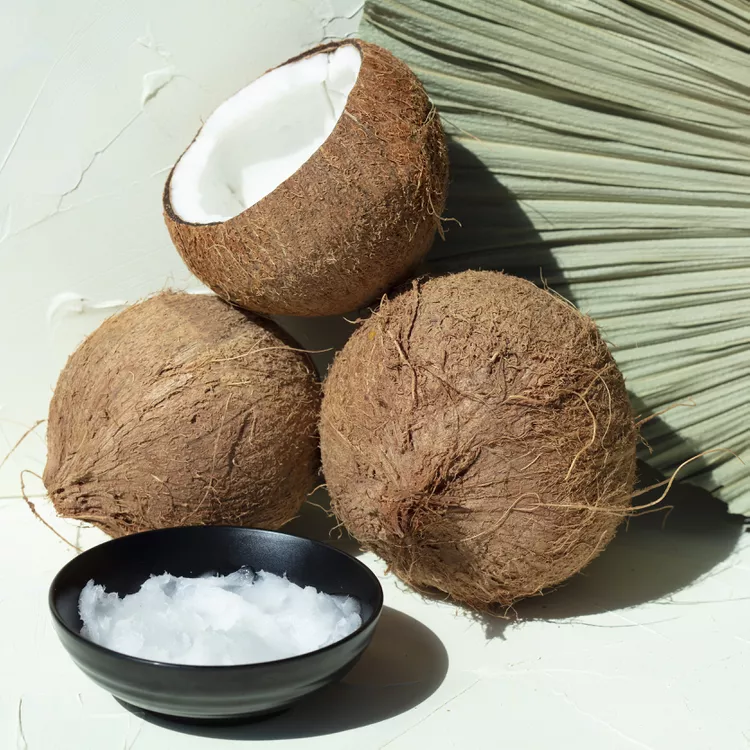
Discover the 15 benefits of coconut oil for hair.
Coconut oil is very popular and often preferred as a hair oil throughout the world. And it is a very popular ancient elixir in Asia. We tell you why.
Many people who live in the coastal areas of the world, more specifically in areas where coconuts grow in abundance, know that pleasant coconut oil is their only hair oil. These are the areas like the Indian subcontinent, Sri Lanka, Indonesia, Malaysia, Burma, the Philippines and parts of the Caribbean.
Coconut oil is rich in carbohydrates, vitamins, and minerals that are good for the human body. However, coconut oil is not limited to hair; It is used in the preparation of cosmetic creams and soaps, and in Asian countries, it is also used to prepare various types of food and salads.
Coconut oil has been used as hair oil for thousands of years and has shown remarkable results. Certain components of coconut oil keep hair strong, nourished, and protected from the effects of premature aging, such as baldness and hair loss. Let’s take a look at some of those hair benefits, and what components of coconut oil are responsible.
Benefits of coconut oil for hair
1. Hair loss:
Coconut oil has been used since ancient times in India for hair grooming. Various remedies using herbs and coconut oil were prepared to prevent hair loss. One such remedy can be prepared in modern times by boiling Salvia leaves in coconut oil.
This mixture can be applied to the scalp for the improvement of healthy hair, and its use will also prevent hair loss. Applying a mixture of coconut oil and lemon water can also provide relief from hair loss, as does the mixture of coconut oil and gooseberries. They boil gooseberries in coconut oil and then apply it to their hair.
2. Hair damage:
Using coconut oil on hair helps reduce protein loss in both damaged and intact hair. Rich in lauric acid, coconut oil has a high affinity for hair protein and easily penetrates the hair shaft due to its low molecular weight. It can be used for pre-wash or post-wash hair grooming.
3. Cooling Properties:
Applying coconut oil to the head and scalp also has a cooling effect. It can cool and soothe people with hotheads, or those who suffer from severe scalp sweating.
4. Moisture retention:
Coconut oil can retain moisture, as it does not break down or evaporate easily, it remains very stable. It does not let moisture escape, thus keeping hair moist and soft, preventing hair breakage.
5. Hair Conditioning:
Coconut oil is the best hair conditioner than any synthetic available on the market. Using warm coconut oil helps keep hair shiny and smooth. Apply the warm oil at night and wash your hair the next morning. This can be repeated from time to time for healthy, strong, and conditioned hair.
6. Anti-dandruff:
Various fatty acids available in coconut oil serve as very good anti-dandruff agents and are much better than any anti-dandruff shampoo. Regular application of coconut oil can help you get rid of dandruff for good.
Coconut oil mixed with warm water and castor oil can also be effective in treating dandruff. Massage the scalp and hair with this mixture for best results.
Another home remedy for dandruff can be prepared by mixing coconut oil with sesame oil. Apply this mixture for about 30 minutes and then wash your hair.
7. Styling:
Coconut oil can be a good styling oil for hair, as it melts and then condenses when cooled. Therefore, when you apply it to your hair, it is diluted and spread evenly due to the heat of the scalp. Soon after, as the hair comes into contact with air, the oil in the hair condenses, thus working as a hair cream or gel.
8. Head Lice Protection :
Head lice are a very common hair pest and can cause embarrassment for anyone. Also, they tend to come back again and again.
There are many chemical products for the treatment of lice, but unfortunately, they can also damage the scalp and hair due to their strong chemical components.
Combing through wet hair with a fine comb is a good remedy for getting rid of lice, but it can also damage wet hair. However, if one covers the wet hair with coconut oil, it becomes much easier to comb and subsequently remove the lice.
9. Hair care for dry hair:
For people with dry hair and who have dry and thin hair, taking care of their hair is a big concern. However, using strong hair care products for cleansing, toning and conditioning can lead to a dry and flaky scalp. Coconut oil can be effective in caring for this type of dry hair.
10. Hair toning:
Coconut oil also helps tone hair, especially dry hair. Apply a warm mixture of coconut oil and lavender essential oil to your scalp at night, then wash and rinse your hair the next morning. You can repeat this as often as you like until you see the desired results.
11. Hair Conditioning:
Hair conditioner can be easily prepared at home using coconut oil. Not only is it effective; but It also has no side effects. Mix a little henna with coconut oil and hot milk to form a paste. Apply this to your hair for 20 minutes and then rinse your hair properly. This hair conditioner is very effective, especially for dry hair.
12. Boils:
Some people experience the condition of boils on the scalp, especially during the winter. This can also happen if it is exposed to heat or sun for a long duration.
It is important to keep the hair and scalp clean and occasional hair massage with a mixture of coconut oil and olive oil can provide relief from the uncomfortable and unsightly problems of boils. However, if the problem persists, you should contact your health care specialist.
13. Split Ends:
If you have a lot of split ends in your hair, it is generally recommended to cut them, but in case this problem appears in a small number of your hair strands, then you could use simple home remedies to solve the problem.
Massage the hair with a mixture of coconut oil and almond oil for a few minutes; This will help minimize split ends and bring them back together.
14. Healthy Hair:
With various benefits such as hair nourishment, anti-aging properties, moisture retention, and vitamin E supplementation, coconut oil in shampoo is one of the best things that helps your hair.
15. The Oily Factor:
Detergent or soap-based shampoos leave your hair dry, rough, hard, and bleached. Therefore you will sometimes find that you cannot gently comb your hair after you have washed it.
The oil in the shampoo counteracts this effect. In coconut oil, that component comes from natural saturated fats and keeps hair smooth and shiny.
How to apply coconut oil to hair
Before fully entering into the different ways of using coconut oil in hair care, it is important to know the objective that we intend to achieve with its use. In other words, we will not apply it the same if we want to combat dandruff or, on the contrary, if we are looking for a hydrated and nourished mane.
Moisturize the hair
Take two tablespoons of coconut oil and spread this amount through your hair and scalp.
Cover the hair with a shower cap or something similar and let it act for an hour.
Rinse the hair with water, then comb the hair.
Curb frizz
Apply a tablespoon of coconut oil to your hair. On this occasion, it is not necessary to rinse the hair with water.
Fight dandruff
Mix two tablespoons of coconut oil with sesame or tea tree oil, whichever you prefer.
When the combination is homogeneous, apply it to the hair.
Let the mixture act for 30 minutes and rinse it off.
And you, do you know how you want your hair to look? Take a few minutes to look at your hair and try the star ingredient!
Related Searches….
Light oils for hair
How to use coconut oil for hair growth and thickness
What to mix with coconut oil for hair growth
How to use coconut oil to stop hair fall
can coconut oil regrow hairline?
What kind of coconut oil for hair
Can I use coconut oil on my hair everyday
Coconut oil for hair overnight
Coconut oil ruined my hair
Health
15 good reasons to drink lemon juice in the morning on an empty stomach
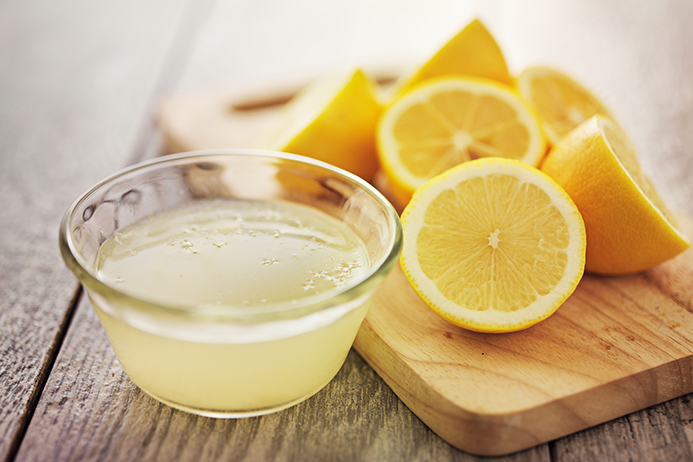
Discover the 15 good reasons to drink lemon juice in the morning on an empty stomach.
Lemon is one of the most frequently and widely used citrus fruits.
Its popularity is due to its scent and refreshing taste.
Its aroma makes it an ingredient of choice in many recipes and the composition of perfumes.
It also accompanies a large number of drinks, including tea and cocktails, it can also be served as fruit juice.
Not only is lemon used for its aromatic qualities, but also its therapeutic dimension.
Rich in vitamin C, lemon indeed has formidable therapeutic virtues: its Antiviral and antibacterial properties as well as its ability to stimulate the immune system are widely recognized.
One of the most common ways to reap the benefits of lemon is by squeezing the juice.
Lemon juice stimulates digestion and has a detoxifying action.
It also promotes drainage of the liver and thus improves digestion.
By its ability to boost metabolism, lemon juice is an effective way to lose weight.
If you want to lose weight, drinking lemon juice in lukewarm water every morning on an empty stomach gives fabulous results.
But that’s not all, nutrition specialists at the Edison Institute of Nutrition have compiled a list of the main benefits of consuming lemon juice mixed with lukewarm water on an empty stomach:
1. An excellent source of vitamin C, lemon juice protects the body by strengthening the immune system.
2. Drinking lemon juice in lukewarm water every morning on an empty stomach helps maintain pH balance in the body.
3. Thanks to its antibacterial properties, lemon juice helps fight infections.
4. Has a detoxifying action.
5. Promotes digestion.
6. Besides vitamin C, lemon is also an excellent source of potassium, calcium, phosphorus, magnesium, etc.
7. Helps fight colds.
8. Lemon water is a well-known remedy for dealing with different skin problems like acne, rashes, wrinkles, or dark spots.
9. Mixed with lukewarm water, lemon juice stimulates digestion, boosts metabolism, and thus allows you to lose weight quickly.
10 Lemon juice is also very effective in removing toxins that have accumulated in the liver.
11. The anti-inflammatory properties of lemon help fight infections of the respiratory tract, sore throat, and inflammation of the tonsils.
12. Rich in electrolytes, lemon juice effectively hydrates the body.
13. Drinking lemon juice mixed with lukewarm water decreases muscle and joint pain.
14. Lemon juice in lukewarm water promotes good dental hygiene because it helps decrease dental pain and prevent gingivitis.
15. Drinking lemon juice in lukewarm water stimulates digestion and regulates intestinal transit.
SOME QUESTIONS / ANSWERS AND COMMENTS :
Q. Out of curiosity… my cousin is allergic to lemon. Does lime have the same virtues?
A. Yes, you can substitute lemon for lime.
I had to stop drinking lemon water for a month because I was sick. The joint pain I got rid of before all came back.
So I started drinking lemon juice in lukewarm water again every morning on an empty stomach.
Now after a week, and it’s true, my pain in my knees is gone !!!!
It’s amazing! Lemon is indeed very alkalizing and promotes the elimination of acids.
Also, it contains a lot of vitamin C, which is good for the joints.
Some people suffer from vitamin C deficiency and need to be sure to find it in their diet or supplements.
Q. After drinking lemon juice in lukewarm water in the morning on an empty stomach, how long should I wait to eat?
A. I recommend that you wait 20 to 30 minutes before eating.
Q. Why does lemon juice need to be mixed with lukewarm water? Is lemon juice also beneficial in cold water?
A. Lukewarm water stimulates digestion and the liver.
Coldwater does the opposite, it blocks digestion.
So it is best to consume lemon juice in lukewarm water.
Q. How many lemons should you squeeze in the morning to benefit from the benefits of this fruit?
A. I suggest squeezing half a lemon in a large glass of lukewarm water (25cl).
Lemon juice is rich in vitamin C and antioxidants.
Citric acid and vitamin C promote the dissolution of gallstones, their elimination, as well as the clearing of the bile ducts.
Lemon juice has been used for centuries in the treatment of kidney stones and gallstones.
Lemon also has antimicrobial properties that help reduce gallbladder infections and relieve pain.
The pectin in lemon juice relieves bloating, nausea and pain.
Besides, lemon juice helps reduce the production of cholesterol by the liver.
Q. Hello. I have a question: I have thyroid problems, can I drink lemon juice in lukewarm water?
A. Yes. You can drink lemon juice in lukewarm water if you are suffering from thyroid problems.
Q. I take medicine on an empty stomach every morning for a thyroid problem. Should I take this medicine before drinking lemon water or after?
A. Since lemon water is absorbed relatively quickly by the body, I recommend that you take your medicine soon after drinking the lemon water.
Joint pain is associated with poor digestion and allergic reactions to certain foods.
Lemon water promotes digestion and the elimination of toxins.
If your teeth are prone to demineralization and are very sensitive, I advise you to drink lemon water through a straw.
Health
3 Benefits of salt water and side effects
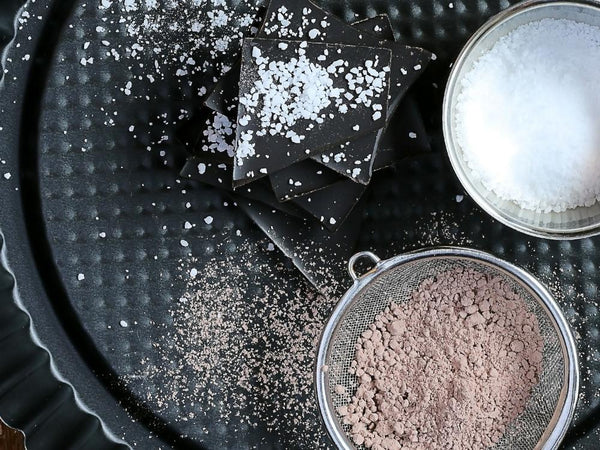
Discover the 3 shocking health benefits of salt water and side effects.
Sometimes the best remedies in life are the simplest. This is true of an ancient skincare hack known for tightening pores, balancing oil production, and rejuvenating skin.
You won’t need fancy skin creams packed with chemicals and preservatives to achieve a youthful glow after this.
You can start to improve the quality of your skin with just two things: purified water and high-quality salt, and you will see how the benefits of saltwater will work miracles for you.
Health Benefits of saltwater
Since saltwater therapy has been used for centuries throughout the world, including ancient Greece, there is strong anecdotal evidence that it works wonders on the skin.
A handful of studies have found the saltwater bath to be particularly effective for troublesome skin conditions, such as psoriasis.
Saltwater is said to benefit your skin in the following eleven ways:
• Closes open pores
• Absorbs excess oil
• Balances oil production
• Kills acne-causing bacteria
• Diminish scars
• Heals scratches and cuts
• Exfoliates dead skin cells
• Restores the natural pH of the skin
• Improves the barrier function of the skin
• Improves hydration
• Reduces inflammation
1.- Benefits of salt water for acne
If you are lucky enough to live near the ocean, you may already know this beauty secret.
But if you don’t live on the coast, just fan warm salt water the next time you have an outbreak.
Try mixing a cup of purified water with a tablespoon of sea salt.
Use a cotton ball to gently apply saltwater to acne and allow it to dry.
By the way, if you try this treatment and your acne still isn’t clearing up within a day or two, maybe your diet is to blame.
Make sure to avoid sugar, processed junk, gluten, peanuts, yeast, and dairy for a while to see if your skin clears up.
Eat plenty of green leafy vegetables, lean protein sources, and healthy fats like coconut oil and avocados; your skin and waist will thank you.
2.- Benefits of salt water for scratches
If you’ve ever heard the expression “throwing salt on a wound,” you probably aren’t very interested in putting salt water near your scratches.
However, this treatment can be beneficial in killing harmful bacteria and speeding up the healing process.
Research shows that bathing in magnesium-rich Dead Sea salt improves the skin’s barrier function, improves skin hydration, and reduces skin inflammation, which are all the things you’ll need if you have a cut or scratch.
Fill your bathtub with warm water and pour in a cup of sea salt.
Take the experience to the next level by adding 10 drops of lavender essential oil.
The scent will promote a deep sense of relaxation – you may even feel like you are in a spa!
3.- Drink salt water to heal from the inside out
The good thing about salt water is that there are many ways to use it. A glass of warm salt water, called “Sole,” is a great way to start your day and promote internal healing.
As long as you use a natural form of salt (and avoid drinking seawater), it will promote hydration, facilitate digestion, reduce inflammation, improve your sleep, detoxify your cells, improve your bone health, and more.
What does salt do to the body
We rarely think about what goes into nature’s most common treasures, like salt.
This natural mineral comes directly from the earth, formed into crystals from a combination of sodium and chloride.
It is found naturally in seawater, making up at least three percent of our world’s oceans. And when seawater is trapped, the water evaporates and leaves salt crystals.
Despite what you may have heard about sodium and your health, a natural source of salt contains vital nutrients that are important for maintaining optimal well-being.
First, salt provides key minerals like sulfur, calcium, sodium, magnesium, silicon, boron, potassium, bromine, and strontium.
With its rich mineral content, salt can help you lose weight, reduce asthma symptoms, improve blood sugar levels, and regulate heart health.
However, keep in mind that not all salts are created equal. Table salt, for example, is highly processed and bleached before it reaches that little glass bottle.
Unfortunately, during mass production, manufacturers strip you of everything good for your health.
The result is a product that does not resemble its original form and can even harm your health. When doctors warn against consuming too much salt, table salt is what they mean.
For your skincare routine and general health, try using these unprocessed varieties:
Sea salt for skin
Natural sea salt contains the many minerals our bodies need, such as magnesium, calcium, sodium, and potassium.
All of these play a role in the health of our skin, allowing cells to communicate with each other and heal problems that arise.
When you don’t have enough minerals, you will see annoying symptoms like dry skin, dullness, irritation, and blemishes.
Fortunately, sea salt can naturally enhance hydration and strengthen the outer layer of your skin to keep it looking healthy.
Himalayan pink salt for skin
Despite the name, there are no salt mines in the Himalayas. The pink salt slabs come from the Khewra Salt Mine in Pakistan, about 300 miles west of the Himalayas.
As the second-largest salt mine in the world, people have been collecting this commodity for more than 2,000 years.
Only in the last decade has it become popular in Western culture. Salt is made up of 95 percent sodium chloride.
The rest is a mixture of polyhalite and other minerals, which give the salt its characteristic pinkish hue.
Due to the lack of processing, it still contains the beneficial minerals that your skin will love.
As you can see, saltwater provide a series of skincare benefits, so if you want to show off shiny and well-groomed skin, do not hesitate to follow each of the tips in this publication step by step.
Health
12 Benefits of Jamaica flower and side effects
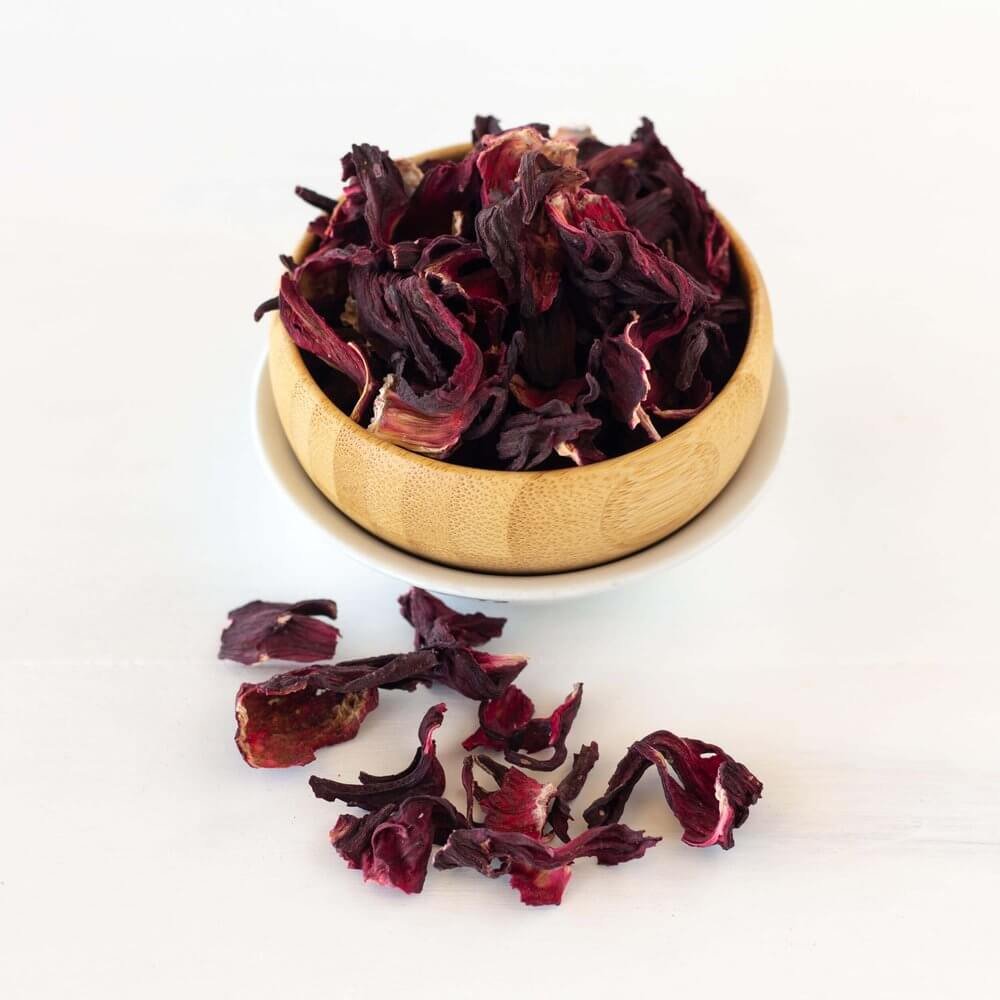
Table of Contents
-

 Benefits4 months ago
Benefits4 months agoThe Benefits of Joining Gym Lumolog – Improve Your Fitness & Health
-

 Food1 year ago
Food1 year ago10 + Benefits of carrot juice and side effects
-

 Health1 year ago
Health1 year ago50 Super Healthy (And Very Often Cheap) Foods
-

 Health1 year ago
Health1 year ago5 Shocking health benefits of kinkeliba and side effects
-

 Food1 year ago
Food1 year ago8 shocking benefits of leek juice and side effects
-

 Health1 year ago
Health1 year ago15 health benefits of soursop leaves tea and side effects
-

 Health1 year ago
Health1 year ago15 Benefits of lipton tea and side effects
-

 Health1 year ago
Health1 year agoBenefits of guava leaves Sensually









